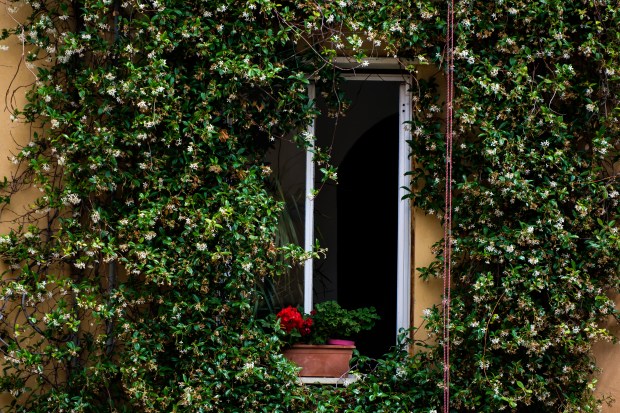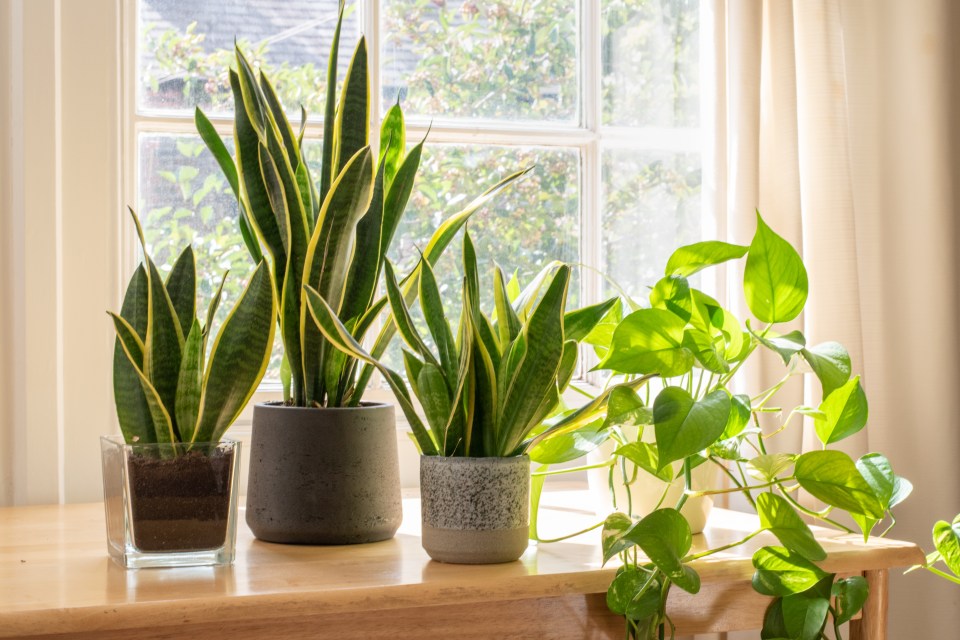WE’VE all got our preferred methods of dusting our homes, but did you know certain houseplants can lessen the load when it comes to banishing dust?
Many houseplants can catch and hold onto airborne dust particles, which is great news for plant lovers and homeowners.
The plants do this by pulling in the dust like magnets, from the air and onto their leaves.
So, which plants work best for this?
Spider plant
If you’re looking for a low maintenance plant that’s easy to find and take care of, the spider plant is the best choice for you.
It’s great choice for pet owners too, because it’s not toxic and resilient to all kinds of conditions.
The plant also thrives in indirect sunlight, but you will need to wipe the collected dust from the leaves to ensure it can photosynthesise.
Additionally, they absorb nitrogen dioxide which can help to keep the air circulating your home clean and fresh.
Snake plant
The snake plant is renowned for being succulent, which means it’s super easy to look after.
It’s a great choice for keeping air inside clean and fresh as it releases oxygen into the air whilst removing other toxins.
Meanwhile, researchers at Harvard University found it to be one of the most oxygen-producing houseplants, helping you to breathe and sleep better.
Better yet, you can pick up this plant for just £9.99 from Wilko right now, making it budget-friendly too.
English Ivy
If you frequently dye your hair at home, then it’s worth investing in an English Ivy plant.
That’s because it helps to reduce the levels of chemicals, but this plant is toxic for pets so should be avoided by pet owners.
The plant is pretty easy to look after though, and needs water and sunlight every day.
Peace Lily
The peace lily is an ideal plant to be kept in the bedroom as it has a high transpiration rate meaning that when watered, it helps to bring moisture back into the room.
However, the bad news is it’s toxic to pets and needs a bit more TLC, as it requires morning sunlight only, misting and damp soil.
Aloe Vera
When you think of aloe vera, chances are its skin-soothing benefits instantly spring to mind.
However, it turns out it’s also very effective in removing toxins from the air.
Aloe Vera plants are great for places like kitchens, so they can banish airborne chemicals found in detergents.
Five popular plants which can damage your home

HOME insurance experts at Norton Insurance Brokers have identified five popular plants, including wisteria, bamboo, and ivy, that, while visually appealing, are increasingly linked to costly structural issues, rising premiums, and rejected insurance claims.
- Wisteria – Hidden structural threats and denied claims for water damage
- Bamboo – Spreading roots linked to floorboard damage and legal disputes
- English Ivy – Aerial roots prying into mortar and impacting building integrity
- Tall Trees – Subsidence risk and invalidated policies due to proximity
- Jasmine – Damp and mould caused by overgrowth near vents and brickwork














